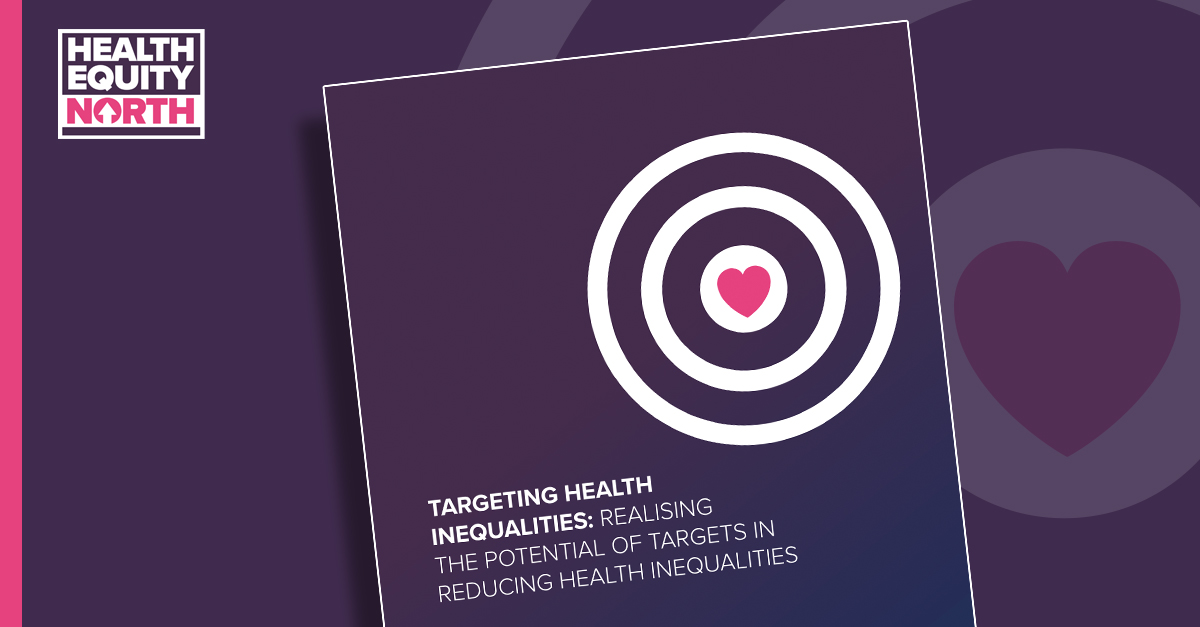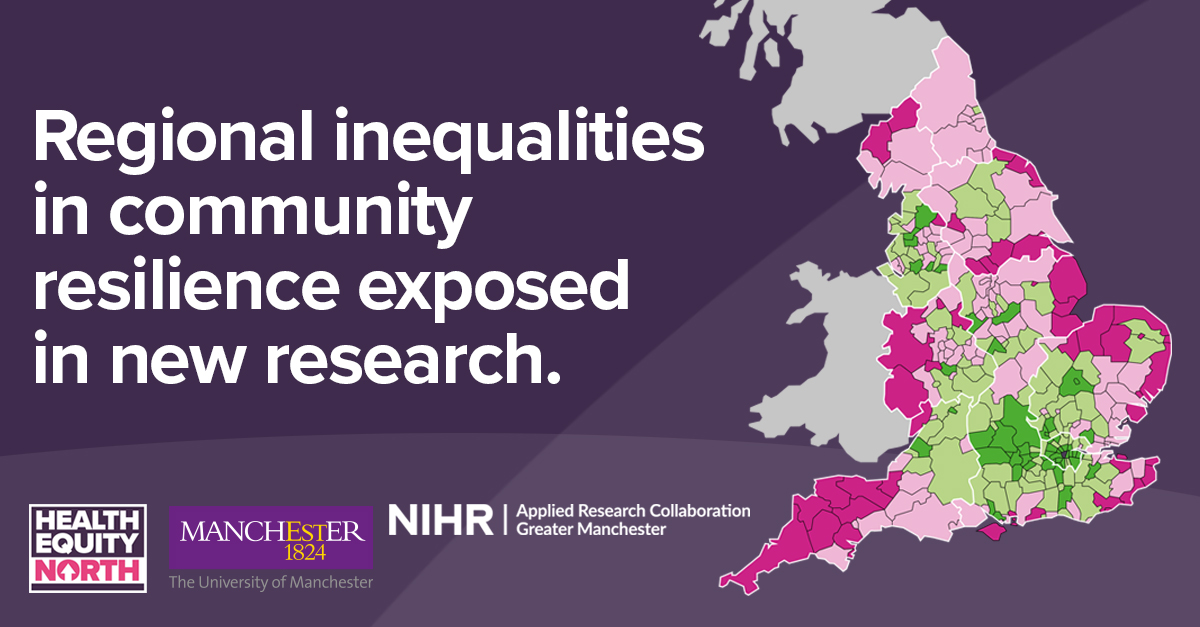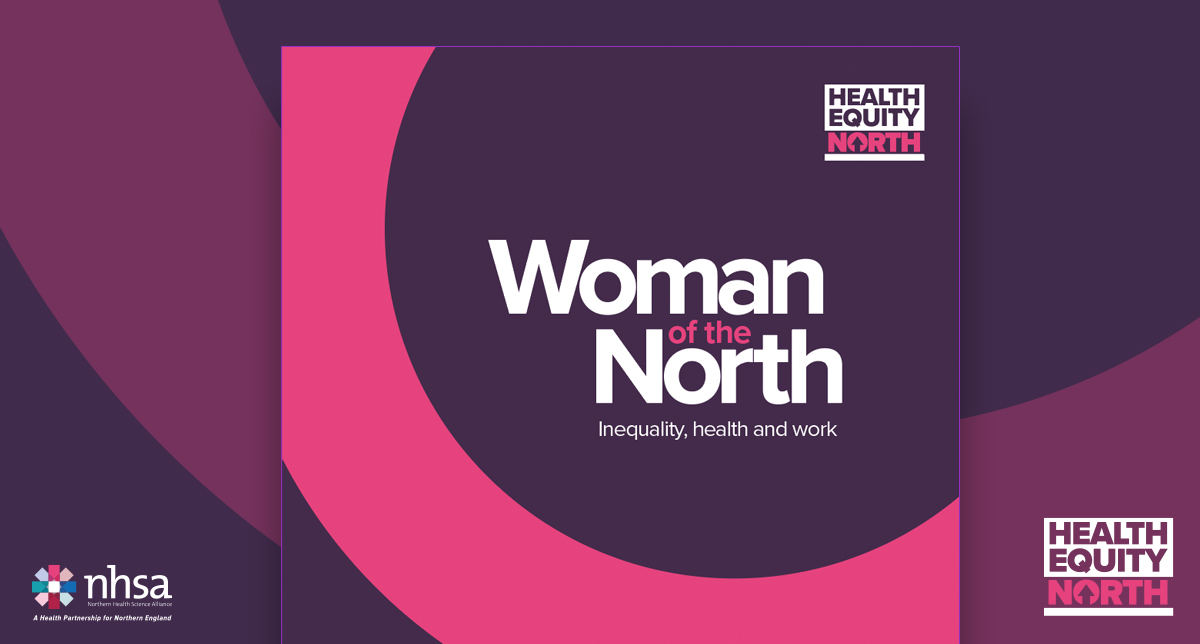UK health inequalities could be significantly reduced in a decade if politicians use targets as part of cross government strategy

Read the report here
The authors of a new research report are calling on all major UK political parties to commit to use targets as part of a cross government approach to reduce health inequalities between communities in the UK, as parties develop their policies for the next election.
‘Targeting Health Inequalities: Realising the Potential of Targets in Reducing Health Inequalities’ has been produced jointly by Health Equity North, Newcastle University, University of Strathclyde and commissioned by the Health Foundation. It shows that by using specific long-term targets to fight inequalities across the whole of the UK, the health of the people in deprived areas, including children and the working age population, could improve significantly. The report outlines the rationale for using this approach and gives a valuable guide to which targets and metrics are supported by the strongest evidence and would be easiest to implement.
Research shows that stark inequalities exist in the UK based on a person’s geographical location. For example, life expectancy is highest in the least deprived area of the UK – the London Borough of Westminster (85 years for men, 87 years for women). However, it is lowest in the UK’s most deprived area – Glasgow City (74 for men and 79 for women). Data shows that excess poor health in the North of England alone costs the UK economy over £13bn per year.
The report puts forward a case for using a previously tried-and-tested method of geographical and socio-economic targeting, specifically at the most deprived areas, and therefore those most likely to be affected by inequalities. It shows that by concentrating long-term on areas and where opportunities and improvements are likely to have the biggest impact, the overall health and workforce population could improve significantly.
The academics show that based on previous UK experience, reductions in health inequalities, of for example around 10% reduction in the life expectancy gap between the bottom 20% of local authorities and the national average, could be achievable within a 10-year time frame.
From the report, the group has made six recommendations for a targets-based approach to health policies:
Recommendation one
Targets should be used in a cross-government health inequalities strategy. There is evidence that this approach contributed to the success of the 2000 – 2010 English health inequalities strategy. In this time, both infant mortality and child poverty rates decreased – however, they increased after 2011.
Recommendation two
Targets should use a geographical measure of inequality, specifically focussing on the 20% most deprived areas of the UK.
Recommendation three
Targets should measure a range of health outcomes. The report has identified six key areas in which to targets could be based:
- Infant mortality rates
- Life expectancy
- Healthy life expectancy (the age at which a person can expect to live a healthy life)
- Prevalence of obesity in both adults and children
- Prevalence of anxiety and depression in adults
- Suicides
Recommendation four
Targets should be accompanied by interim indicators. It is estimated that it takes around 10 years of concerted policy action to see measurable reductions in health inequalities. The report suggests that, in the meantime, the following would be best placed to act as short-term indicators of progress:
- Household relative poverty rates (households which have less than 60% of the average income after housing costs).
- Employment rates
- Relative child poverty rates
- Educational attainment rates (5+ GCSE grades A*-C)
- Meeting recommended physical activity targets
- Consuming five or more fruit or vegetables per day
Recommendation five
Targets should be aspirational and achievable. The report identifies that levelling-up health, improving child health and offering better mental health services should be at the core of targeting, and that the 20% most deprived areas would gain the most from any improvements.
Recommendation six
Targets should be resourced and supported by policy action and political leadership across all four nations.
Professor Clare Bambra, Professor of Public Health at Newcastle University and Academic Co-Director of Health Equity North, said: “The use of targets has been used previously in health policies in the UK and our report summarises the lessons learnt from those experiences. We believe that a similar approach taken over the next decade could be key in tackling the difficult task of levelling-up and reducing inequalities in the places where it will have the biggest positive impact.
“This is not an easy, short-term or straightforward task and it requires a whole Government approach, both nationally and locally – which is why we are asking for a nationwide implementation of this strategy.”
Professor Kat Smith, of Strathclyde’s Department of Social Work & Social Policy, said: “Health inequalities in the UK are among the most pressing challenges in society today. There are massive human costs to these inequalities in terms of poor health, lower quality of life and shorter life expectancy. This is an issue that needs to be urgently addressed by all governments.
“Our report argues that carefully designed targets can help ensure tackling health inequalities is seen as a priority across policy areas, supporting buy-in across sectors and at national and local levels. Reviewing evidence on the impacts of previous policy targets suggests that consistently enforced, ambitious targets can help achieve measurable reductions in health inequalities within a decade.”
Director of health at the Health Foundation Jo Bibby said:
“The next government will lead a country where life expectancy is near grinding to a halt. Worsening health among our poorest is negatively impacting the economy, public services, and our collective well-being. Reversing this trend is a formidable challenge. However, clear targets and sustained action to achieve them have turned the tide before and are needed now to reduce health inequalities and improve health.
We need policymakers across all parties and nations to step up. This report has practical ideas for the measures and targets that could form the foundation of a new cross-government health strategy. But ultimately, it will take political leadership to improve health and tackle health inequalities in all aspects of people’s lives.”
Linked Report





